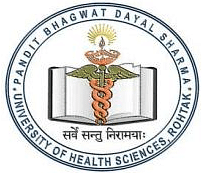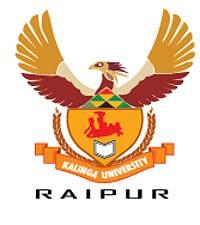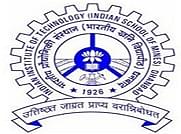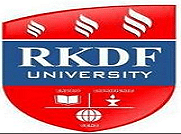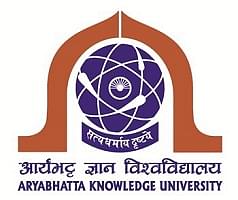Introduction about Ph. D in Sports Management
Ph.D. in Sports Management is an advanced academic from best college program designed for individuals passionate
about exploring the complex intersection of sports, business, and management.
This doctoral degree delves deeply into the multifaceted aspects of the sports industry,
examining topics such as sports marketing, athlete management, sports finance,
facility management, sports law, and organizational behaviour within sporting
contexts.
At its core, a
Ph.D. in Sports Management aims to produce scholars who can contribute to the
academic understanding of sports management while also preparing professionals
to lead and innovate within the dynamic and rapidly evolving sports industry.
Students pursuing a
Ph.D. in Sports Management typically engage in rigorous coursework that
combines theoretical frameworks with practical applications. They may study
topics such as sports economics, sports analytics, sports sociology, sports
ethics, and sports governance. Additionally, they often receive training in
advanced research methodologies, statistical analysis, and academic writing to
prepare them for conducting original research and contributing new knowledge to
the field.
One of the
distinguishing features of a Ph.D. program in Sports Management is its
interdisciplinary nature. Drawing from fields such as business administration,
economics, sociology, psychology, law, and kinesiology, students gain a
holistic understanding of the various factors influencing sports organizations,
athletes, fans, and other stakeholders.
Furthermore, Ph.D.
candidates in Sports Management often have opportunities for practical
experience through internships, consulting projects, or collaborations with
sports organizations. These experiences provide valuable insights into
real-world challenges and opportunities facing the sports industry while also
enhancing students' professional networks and employability.
Graduates of Ph.D.
programs in Sports Management pursue diverse career paths. Some enter academia
as faculty members, conducting research, teaching courses, and mentoring future
generations of sports management professionals. Others may pursue careers in
sports organizations, leagues, teams, agencies, governing bodies, marketing
firms, consulting firms, or other related fields, where they apply their
expertise to drive innovation, strategic decision-making, and organizational
success within the sports industry.
In summary, a Ph.D.
in Sports Management offers a rigorous and rewarding educational experience for
individuals passionate about advancing knowledge and making a positive impact
within the dynamic and influential world of sports.
What is admission process for Ph. D in Sports
Management?
The admission process 2024 Ph.D. in Sports Management follows a similar structure to other
doctoral programs but with specific considerations for the field of sports
management. Here's an overview of the typical admission process:
Research Programs
and Institutions: Begin by
researching Ph.D. programs in Sports Management offered by various
universities. Consider factors such as faculty expertise, research focus areas,
program reputation, and resources available for doctoral students. Identify
programs that align with your research interests and career goals.
Eligibility
Criteria: Review the
eligibility requirements for each program. Generally, applicants must hold a
master's degree in a related field such as sports management, business
administration, kinesiology, sociology, or a related discipline. Some programs
may accept exceptional candidates with a bachelor's degree, particularly if
they demonstrate strong academic credentials and relevant experience.
Standardized Tests: Many universities require applicants to
submit scores from standardized tests such as the GRE (Graduate Record
Examination) or GMAT (Graduate Management Admission Test). Check the specific
requirements of each program regarding which tests are accepted and the minimum
score thresholds.
Academic
Transcripts: Prepare
official transcripts from all undergraduate and graduate institutions attended.
These transcripts should demonstrate strong academic performance, particularly
in relevant coursework related to sports management, business, economics, or
other relevant disciplines.
Statement of
Purpose: Write a compelling
statement of purpose (SOP) outlining your academic background, research
interests, career goals, and reasons for pursuing a Ph.D. in Sports Management.
Highlight your passion for the field, any relevant experiences or achievements,
and how the program aligns with your academic and professional aspirations.
Letters of
Recommendation: Secure
letters of recommendation from academic or professional references who can
speak to your qualifications, research potential, and suitability for doctoral
studies. Typically, three letters are required, but check the program's
specific requirements.
Research Proposal: Some programs may require applicants to
submit a research proposal outlining their intended research topic, objectives,
methodology, and significance. This demonstrates your readiness to engage in
independent scholarly inquiry and may help match you with potential advisors.
CV/Resume: Prepare a comprehensive curriculum vitae
(CV) or resume highlighting your academic achievements, research experience,
publications (if any), professional experience, and relevant skills related to
sports management.
Application
Submission: Complete the
online application form provided by the university or department. Ensure that
all required documents, including transcripts, test scores, statement of
purpose, letters of recommendation, and any additional materials, are submitted
by the application deadline.
Interview (if
applicable): Some programs
may require an interview as part of the selection process. This interview
allows the admissions committee to assess your fit for the program, discuss
your research interests, and clarify any aspects of your application.
Admission Decision: After reviewing all applications, the
admissions committee will make decisions based on various factors, including
academic qualifications, research potential, fit with the program, and
available resources. Successful applicants will receive an offer of admission.
Funding and
Scholarships: Investigate
funding opportunities, including scholarships, grants, fellowships, and
assistantships, offered by the university or external sources to support your
doctoral studies.
It's essential to
carefully review the specific requirements and deadlines for each Ph.D. program
in Sports Management you're considering and to prepare your application
materials thoughtfully to maximize your chances of admission. Additionally,
reaching out to the admissions office or program coordinator for clarification
on any requirements or procedures is recommended.
What is eligibility for Ph. D in Sports Management
?
The eligibility criteria for Ph.D. in Sports Management can vary depending on the institution
and program requirements. However, here are some common eligibility criteria
you might encounter:
Educational
Background: Applicants are
typically required to have a master's degree in a related field such as sports
management, business administration, kinesiology, sociology, psychology,
economics, or a closely related discipline. Some programs may accept
exceptional candidates with a bachelor's degree, especially if they demonstrate
outstanding academic and research potential.
Academic
Achievement: Strong
academic performance in previous undergraduate and graduate coursework is
usually expected. This may be assessed through the submission of academic
transcripts, which should demonstrate proficiency in relevant subjects related
to sports management, business, economics, or other related disciplines.
Standardized Test
Scores: Many institutions
require applicants to submit scores from standardized tests such as the GRE
(Graduate Record Examination) or GMAT (Graduate Management Admission Test). The
specific score requirements may vary between programs, so it's essential to check
the requirements of each institution.
Language
Proficiency: If the
language of instruction at the institution is not your native language, you may
be required to demonstrate proficiency in the language, usually through
standardized tests such as the TOEFL (Test of English as a Foreign Language) or
IELTS (International English Language Testing System).
Research Experience
and Potential: While not
always mandatory, having research experience, such as participation in research
projects, publications, or presentations at conferences, can strengthen your
application. Additionally, demonstrating a clear research interest and
potential for contributing to the field of sports management through your
proposed research topic or statement of purpose is important.
Letters of
Recommendation: Most Ph.D.
programs require applicants to submit letters of recommendation from academic
or professional references who can attest to their academic abilities, research
potential, and suitability for doctoral studies.
Statement of
Purpose: A well-written
statement of purpose (SOP) is usually required, outlining your academic
background, research interests, career goals, and reasons for pursuing a Ph.D.
in Sports Management. This allows the admissions committee to assess your
motivations and fit for the program.
Interview (if
applicable): Some programs
may require an interview as part of the admissions process. This interview may
be conducted to further assess your qualifications, research interests, and
suitability for the program.
It's important to
note that eligibility criteria can vary between institutions and may change
over time, so it's crucial to thoroughly review the specific requirements of
each Ph.D. program in Sports Management you're interested in applying to.
Additionally, reaching out to the admissions office or program coordinator for
clarification on any eligibility requirements is recommended.
What is syllabus for Ph. D in Sports Management ?
The syllabus for Ph.D. in Sports Management can vary depending on the specific program, faculty
expertise, and research focus areas. However, here's a broad overview of the
topics and areas of study that are commonly included in such a program:
Research
Methodologies in Sports Management: Courses focusing on research methodologies equip students with the
skills necessary to conduct rigorous academic research in the field of sports
management. Topics may include qualitative and quantitative research methods,
survey design and analysis, experimental design, data collection techniques,
and statistical analysis.
Theoretical
Foundations of Sports Management: These courses provide students with a comprehensive understanding of
the theoretical frameworks that underpin sports management research. Topics may
include organizational behavior, strategic management, leadership theories,
consumer behavior, marketing theories, economics of sports, and sociology of
sport.
Specialized Topics
in Sports Management: Ph.D.
programs often offer specialized courses that delve into specific areas within
sports management. These courses may cover topics such as sports marketing,
sports finance, sports law and ethics, sports governance, sports analytics,
sports facility management, sports event management, athlete development and
management, and sports media and communication.
Advanced Seminars
and Colloquia: Students may
participate in advanced seminars and colloquia where they engage in
discussions, present their research findings, and critique scholarly work
related to sports management. These seminars provide opportunities for
intellectual exchange, networking, and professional development.
Independent
Research and Dissertation:
The core component of a Ph.D. program in Sports Management is independent
research culminating in a doctoral dissertation. Students work closely with
faculty advisors to develop a research topic, conduct original research,
analyze data, and disseminate findings through scholarly publications and
presentations.
Teaching Experience
(Optional): Some programs
offer teaching assistantships or opportunities for students to gain teaching
experience by assisting in undergraduate courses related to sports management.
Teaching experience can enhance students' professional skills and prepare them
for academic careers in the future.
Professional
Development Workshops:
Ph.D. programs may include workshops or seminars focused on professional
development skills such as academic writing, presentation skills, grant
writing, research ethics, and job market preparation. These workshops help
students develop the skills necessary for successful careers in academia,
industry, or other sectors.





